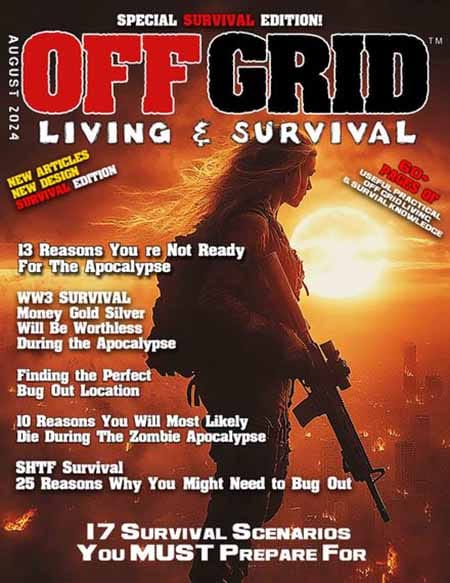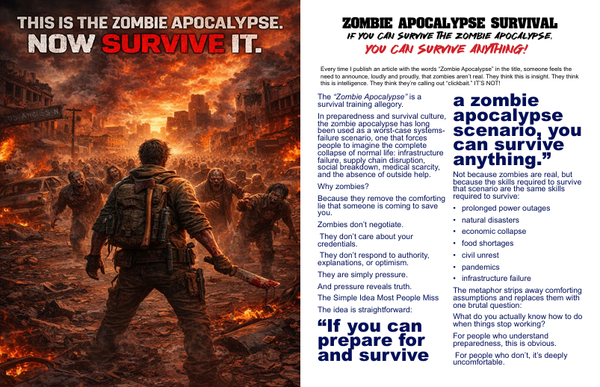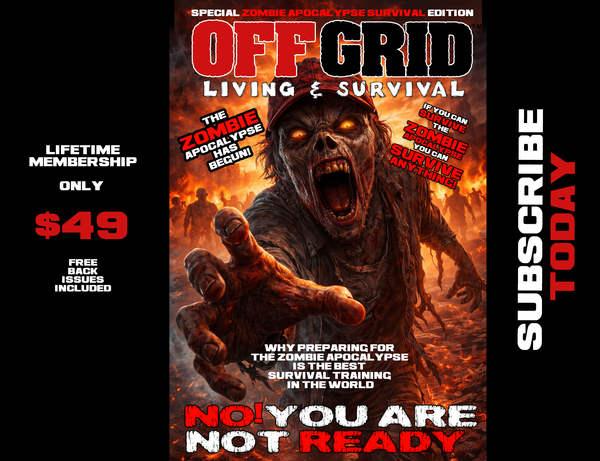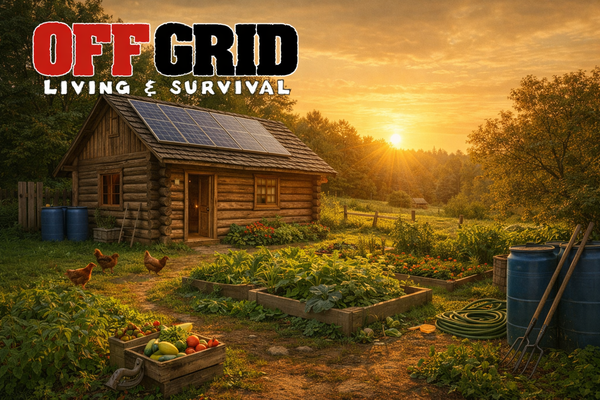So you want to get a bunch of people together, buy land and start an "Off Grid Community"? Think again...
It's not as easy as it sounds. No, you can't just buy a big chunk of land and invite a bunch of people live there.
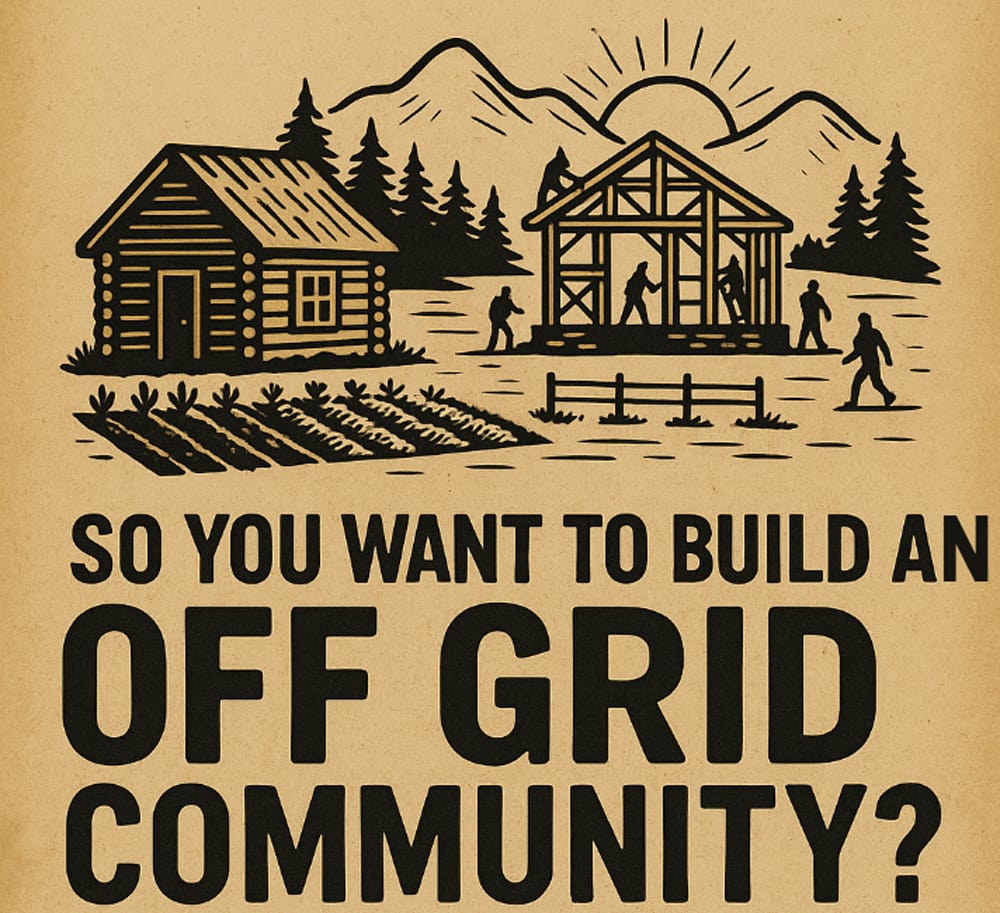
Have you ever wanted to join an off grid community? Perhaps build one yourself by gathering together a bunch of like-minded individuals and build an off grid community of homesteaders that grow their own food, build their own cabins and live off the land like the old pioneers?
It's a dream for some folks to live in a rural country community like this, with lots of other homesteaders, all working together, helping one another build their cabins, doing barn raising, having events and parties, and just sitting around enjoy nature and the community you all built together. That's the off grid community dream.
You can do it, but it takes work and lots of it. Mostly it takes lots of money and planning. And a team of people that work well together. I think this is where is starts. The team.
NOTE: This article will seem negative to some people, but I want to let you know that this isn't about being negative nor am I trying to discourage anyone from their dreams. I just want you to know that's it's not as easy as it seems, and there's a lot more moving parts to it than most people realize there are.
So where do you start?
MONEY! Then you build your team. Preferably a team with money.
The Off Grid Team: The Founders
Your community must work well together, and like any larger group of people, people are going to have differing opinions and ideas about how things should be done. This means having an excellent team that works well together. People must have chemistry.
There will be disagreements but you don't want outright conflict or worse, legal fighting going on. Your team building skills will be the determining factor in the success of your off grid community. Not how much money you throw at it. Keep that in mind while you plan your build and gather your people for the community.
Funding
How do you plan on funding your off grid community? Will everyone chip in what they can afford? Is everything (land, food, utilities, etc.) equally divided amongst all community members regardless of financial contribution, or will it be a pay-to-play kind of deal, where the more money you put in the more authority and say-so you have over the community build? You can see where this could cause animosity and conflict, and that's the last thing you need in your community.
In my opinion building an off grid community will take a team of people that work well together, and build that team (of up to 100 people) one must do a trial run, or multiple trial runs on smaller land before you commit to a big purchase and building cabins throughout a larger parcel that everyone owns.
Who will own the land?
What's the legal status of the community? Will it be a cooperative or a corporation?
Is the land owned by a corporation with all members being shareholders, will it be under a trust, LLC, C corp, S corp, a partnership, a co-op? Will members own their own parcel of land or will everyone share one giant parcel of land with each person owning "shares" of the total?
How will profits (if any) be distributed throughout community members? Who makes the financial decisions? Who decides where funds are allocated? Who decides which projects get funding and which projects are postponed or cancelled? Who decides anything? Will everyone be required to work a certain number of hours a week for the community? Will everyone be required to pay membership dues? Membership fees? Application fees? Monthly maintenance fees? Initial donations?
Investment? I would highly advise AGAINST financial investments into the community. Not only is investing highly regulated and you could find yourself in hot water legally if you say or sell something that could be considered a "security" or word something in a way that could be considered legally as "investment". Certainly never promise any kind of financial returns. If you don't know why, look it up. Don't get into trouble with the SEC.
How is the community governed? Ad-Hoc leadership? Democracy? No leaders and just pure voting? One figurehead, president, CEO?
Do you think a democracy will work? Does everyone get a "vote"? Guess what? That doesn't work a lot of time unless there are clear rules and even then you run the risk of a stalemate and bureaucratic-like slow-downs and stagnation. Not saying democracy won't work in a community, but it needs to be well organized with clear rules and here's the MOST IMPORTANT PART. Ready?
Everyone must be well-informed and educated on everything going on in the community for it to work smoothly.
This all needs to be figured out ahead of time.
The funding for an off grid community should be equal and people should be treated equally regardless of their monetary contributions or time or labor. This is easier said than done. But it's doable. Lookup "intentional communities". They've been doing this for a very long time and have figured out how to make it work.
Funding is a big issue and without money to fund the land purchase, or build the homes/cabins, and purchase all the tools and equipment you need to move off grid then you're going to be at a disadvantage.
This is why I suggest a trial run for a year. A less than permanent off grid community, on leased land, and live in travel trailers, yurts, tiny houses, and other portable non-permanent dwellings just to test how the community works together.
Trial Runs & Off Grid Events
Throw some off grid parties. Gather a bunch of friends and family and folks who want to live off grid. Find a parcel of land and do a trial run. Start small. Maybe a 5 acre parcel. Lease it for 6-12 months for the spring summer from the landowner.
Do a temporary off grid camp to start out.
Everyone could live in Yurts, tiny house, travel trailers, nothing permanent just yet. This is just a trial run to see how everyone works together.
You'll get a good idea of who's pulling their weight around the community and who's not. Have a way already written into the membership agreement on how people will be voted out of the community or asked to leave if and when they cause problems or there is an unresolvable conflict or disagreement or someone just doesn't mech well within the community. It will happen, so have a plan for it. Don't assume everything will work.
Authors Note: I'm not trying to be negative, and I'm not saying this to discourage anyone from building their off grid dream community. I'm just being realistic. Starting and building an off grid community from the ground up is a big and complex project. It's not something people should just jump into thinking it's going to work right out of the gate. You might get lucky, and you might just get everything right on your first try; but how likely is that, really? Not likely. So please, plan ahead, do a trial run or two. And use that time and experience to build your off grid team of community members who contribute to the community and bring value to it. Not just money! Money isn't the most valuable thing here. Anyone idiot can throw a million dollars at something and think that will solve the problem. Money doesn't solve problems, people do. Strong teambuilding skills is necessary to build an off grid community that works.
Plan for leasing the land for 1 year and live on the land for a year. That'll give you a good idea of the things you're going to need, who is going to work out and who's not.
Figure out ahead of time how you're going to handle the management, finances, accounting, and maintenance of the land according to the lease.
Who's going to manage the garden, the livestock, the maintenance, the legal part of it.
You're Going To Need A Lawyer!
Trust me on this one. You're going to want to discuss all this ahead of time and do a trial run. You don't want to get bogged down in the legalities of the whole off grid community building issue. The membership agreement (corporate bylaws; if you put it under a corporation or LLC) must be iron clad. Operations and procedures must be in place so everyone knows what to do given any situation that arises, within reason expectations. You can't plan for everything, and don get bogged down too much in the details, but some of those details will become very important later on.
The county you pick may require you to file paperwork and application for a subdivision. There are a bunch of permits you're going to have to pull when you're ready to start building on the purchased land, so it's better to do the trial run first in my opinion. This weeds out the people who just THINK they want to do it but once they get out there and figure out it's more work than they thought, or they decide they want their money back for some reason, you're going to need legal protection. The days of handshakes and people's words are over. Protect yourself and the community and the members, legally. Someone or multiple people within your community should be lawyers.
NOTE: There's a list of people you're going to need in your community, below.
Purpose & Mission Of Your Off Grid Community
What is your mission? What do you want to accomplish? What are your off grid goals? What are you other community member's goals for their homestead life? What do they want on of this deal? How will they contribute? How will you contribute? What do you bring to the table? Money? Skills? Knowledge?
What's the purpose of the community? To live in peace? To live happier more sustainable lives? To live and be more self reliant? To become 100% self sufficient, growing your own food, raising your own livestock, building your own cabin? Creating a place where people can live in peace and harmony with nature?
Are we talking about a hippie commune? No, and yes. What else is a community but a bunch of like-minded individuals living their own lifestyles the way they all agree upon in peace and in tune with nature. Sustainably and happily. Is that a hippie commune? Or an off grid community? Can you explain to me the difference?
List Of People In Your Community & Their Jobs
Your off grid community should be managed like a small town or village because that's what it is. You're going to need the people with the skills necessary for the jobs that will need to be done. This include funding, accounting, administrative, legal, sanitation, construction, contracting, permitting, management and maintenance of tools and equipment, and the building and management of building all the structures, cabins, workshop, barns, community center building, commercial kitchen, cafeteria, community garden, all the livestock stalls and pens, chicken coops, the layout of all the cabins, and sidewalks, roads, utilities, etc.
You're building a small village and you need to look at it that way. Assuming you've done your due diligence and you've run your trial run and now have a good team of 10-20 families (about 100 people) then you're going to need a list of the skillsets for all the people in your community. Everyone has a job to do and everyone must pull their own weight. Those that can't, the disabled, the elderly, children, etc., will need care and they are just as welcome as anyone else.
You're going to need: (in no certain order)
- Money!
- Accountants
- Treasurer
- Lawyer
- Doctor
- Nurse
- CNA
- Contractor or two
- Construction Workers, general laborers and skilled laborers
- Carpenters
- Electricians
- Plumbers
- Concrete workers
- Ranchers
- Farmers
- Gardeners
- Cooks & maybe even a chef or three to cook all that wonderful food you'll be growing and raising on your community
- Mechanics for working on the community vehicles and keeping the heavy equipment working.
- Welders
- Machinists
- Artists
- Musicians
- Programmers
- Computer and IT professionals
- Data Entry Technicians
- Sales Team - For the farmers market to sell your food fruits and veggies you produce on your community (income streams)
NOTE: Here is a list of tools and equipment and other things you're going to need to build an off grid community.
Off Grid Community Income Streams (this goes to help fund the community)
- Rental cabins (AirBNB, VRBO, HomeAway, HipCamp and many other online vacation rental marketplaces will generate an income on some cabins your build for rental income)
- Camping Spots Rentals
- RV Spot Rentals
- Portable Building and Shed/Cabin sales (this will bring in extra cash and has good profit margins) Build and sell portable buildings and even shipping container homes.
- Farmers Market - Sell food fruit and veggies at your own farmers market right there on the off grid community property
- Outdoor activities - Hiking, camping, fishing, biking, horseback riding, ATV rides a tours etc.
- Online Sales of arts and crafts, preserves, soaps, and textiles; basically anything handmade can be sold online.
- The list goes on and on...
We'll make a full list of ways to monetize and make money off grid later. These are just some quick ideas.
Solar Power Source With Battery Backup
I wrote an article here that goes into a little more detail on the solar panel array and battery backup system you're going to need. Locate your array and battery pack near the center of the community, this way running power lines underground to each cabin will be easier. You can also put a few solar panels on each cabin that can feed power back into the battery system.
Communications & High Speed Satellite & Cable Internet & Cellular Signal With Booster Antennas
To run your businesses from within the off grid community and work from home you're going to need communications with the outside world. Starlink has the best and most used high speed satellite internet for off grid living in my opinion. And likely, if you choose a large plot of land in the middle of nowhere you're going to need satellite internet and cellular booster antennas so you can get cell signal out there to your property.
There are a myriad other things to think about...like a septic system that can handle 20-30 families and maybe 20-50 guests at any given time.
You'll need greenhouses, compost heaps, and other items which are all listed here in an article I wrote titled Off Grid Living For Beginners: 13 Things You Need To Move Off Grid Now. This article goes into much more detail and has a mega-list of tools and equipment you're going to need for your off grid community.
Building a community from the ground up is a HUGE project. Especially if you're going to have 100 people or more living there.
Build your team. Do a test run for a year. See how it goes.
Then move forward and pick your land for your off grid community.
